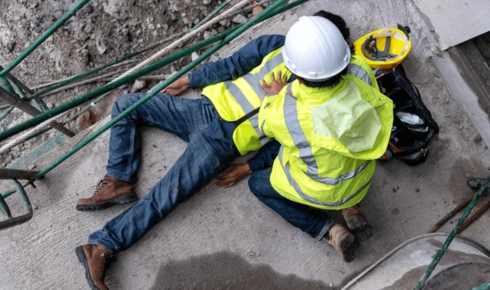Hanover, PA estate lawyers assist with probate disputes by investigating the underlying issues and gathering key evidence, including wills, trust documents, and financial records. They examine the decedent’s intentions, review how assets were distributed, and assess whether any party acted improperly. Once the facts are clear, they negotiate with opposing parties or present the case in court. Their goal is to resolve conflicts while protecting beneficiaries’ rights and honoring the estate plan.
Handling probate disputes alone can be stressful if you’re already grieving a loved one. Without experienced legal support, resolving conflicts over inheritance, executorship, or asset division becomes significantly more challenging. Skilled estate lawyers in Hanover, PA, step in to guide families through these emotionally charged conflicts, helping ensure fair outcomes and peace of mind.
How Do Hanover, PA Estate Lawyers Support Families During Probate Disputes?
Estate lawyers support families by offering straightforward legal advice, managing complex paperwork, and handling all court filings. They ensure that deadlines under Pennsylvania probate law are met and that disputes are correctly presented. Their guidance helps families avoid mistakes that could weaken their case.
They also advise on whether it is better to reach a settlement or move forward with litigation. To strengthen their position, estate attorneys often collaborate with experts, including forensic accountants, appraisers, and medical professionals. These specialists provide insights into financial irregularities, asset values, or questions of testamentary capacity. With a deep understanding of Pennsylvania estate law, lawyers are well-equipped to counter challenges and protect their clients’ inheritance rights.
What Evidence Do Lawyers Use to Challenge Probate Disputes?
Lawyers utilize a wide range of evidence to resolve probate disputes, including legal documents, medical records, financial data, and witness testimony. This evidence helps confirm whether a will is valid, whether the decedent had the mental capacity to create it, and whether outside pressure or misconduct influenced estate decisions.
- Original Will and Amendments
Reviewing the will and any later changes is the first step. Lawyers look for inconsistencies, missing pages, or signs of forgery. These documents provide the foundation for confirming the decedent’s final wishes. - Medical and Capacity Records
Doctors’ notes, hospital records, or psychological evaluations help establish whether the decedent was of sound mind when signing. Evidence of dementia or serious illness may strengthen claims of undue influence. - Witness Testimony
Statements from witnesses present at the will’s signing or those familiar with the decedent’s state of mind can clarify intent. Testimony from notaries or drafting attorneys may also confirm that the will met Pennsylvania’s legal requirements. - Financial and Property Records
Bank statements, real estate appraisals, and account histories reveal whether assets were undervalued or transferred improperly. These records also help determine the actual size of the estate and whether anyone mismanaged funds. - Evidence of Undue Influence or Misconduct
Communications, such as emails, texts, or letters, may reveal attempts to manipulate the decedent. Testimony from family members or caregivers can also highlight suspicious behavior by individuals seeking to benefit unfairly.
By examining this evidence, estate lawyers can either defend the legitimacy of the estate plan or expose misconduct that threatens its validity.
How Do Attorneys Resolve Disagreements Over Estate Value?
Attorneys resolve disagreements over estate value by gathering reliable evidence, working with independent experts, and challenging any questionable transactions. Because heirs often disagree about whether assets are undervalued or unfairly distributed, lawyers step in to establish accurate valuations and protect each beneficiary’s rightful share. Their role is to ensure fairness while keeping the probate process compliant with Pennsylvania law.
- Property and Real Estate Appraisals
Lawyers consult licensed appraisers to determine the fair market value of homes, land, and commercial properties. This prevents disputes when family members believe real estate has been undervalued or sold at a price below market value. - Business and Investment Evaluations
For estates that include businesses, stocks, or retirement accounts, attorneys collaborate with financial experts to calculate the current and future value. These evaluations ensure that complex assets are divided in an equitable mannerequitably. - Review of Questionable Transactions
If the decedent made large gifts or asset transfers shortly before passing, lawyers investigate whether these reduced the estate unfairly. They may challenge such transactions if they appear suspicious or inconsistent with the decedent’s overall estate plan. - Analysis of Estate Debts and Liabilities
Attorneys also examine outstanding debts, loans, or tax obligations that could impact the estate’s net value. By clarifying liabilities, they help prevent heirs from disputing over what remains to be distributed. - Expert Testimony in Court
When disputes cannot be resolved privately, lawyers present evidence and expert opinions in probate court. Judges often rely on this testimony to settle disagreements and determine the estate’s actualtruevalue.
By combining expert evaluations with thorough legal review, estate attorneys work to resolve conflicts efficiently. Their involvement not only protects beneficiaries but also helps avoid prolonged litigation that could drain the estate’s resources.
Can Hiring Experienced Hanover Estate Lawyers Improve Probate Outcomes?
Yes. Experienced estate lawyers possessbring specialized knowledge of Pennsylvania probate law and are familiar withunderstand common strategies employedused in inheritance disputes. Their expertise helps families avoid drawn-out battles and secure fair resolutions. They also know how to uncover hidden assets, challenge invalid claims, and negotiate settlements that prevent costly litigation.
In complex cases involving blended families, multiple wills, or contested trusts, seasoned estate attorneys ensure that the process stays on track. Their thorough approach improves the chances of achieving a fair outcome that respects both the law and the decedent’s wishes.
How Do Hanover Estate Lawyers Handle Disputes With Multiple Heirs?
Estate lawyers handle disputes with multiple heirs by carefully examining each party’s legal rights. They review wills, trusts, and Pennsylvania intestacy laws to determine who is entitled to what share. Then, they mediate disagreements or, if necessary, present evidence in court to resolve competing claims.
In cases where multiple heirs accuse each other of mismanagement or undue influence, lawyers investigate all allegations thoroughly. They coordinate with financial experts to trace transactions and ensure accountability. By managing communication and focusing on facts, estate attorneys work to prevent family conflicts from escalating further.
What Strategies Do Lawyers Use to Address Probate Delays?
Probate disputes can prolongextend the settlement process for months or even years, but skilled attorneys employuse specific strategies to keep cases moving forward. By staying proactive and addressing obstacles head-on, they help families avoid unnecessary setbacks and bring the estate to a resolution more quicklyfaster.
- Ensuring that all petitions, inventories, and filings are submitted accurately and on time
,reducesreducingthe risk of rejections or administrative delays. - Following up with the court, executor, and all parties involved to keep the process on track and prevent stalling.
- Filing motions to compel action when opposing parties or executors fail to fulfill their legal responsibilities.
- Negotiating disputes quickly and focusing discussions on the most critical
importantissues, rather than allowing minor disagreements to prolongdrag outthe case. - Coordinating with appraisers, accountants, or other experts early to avoid delays in valuing assets or resolving financial questions.
- Requesting court intervention when conflicts cannot be resolved informally, ensuring a judge sets deadlines and pushes the case forward.
By applying these strategies, lawyers streamline the probate process, reduce conflict-driven delays, and protect beneficiaries from the frustration of prolonged proceedings.
How Do Estate Lawyers Counter False Claims?
Estate lawyers counter false claims by gathering strong evidence and presenting reliable testimony. For example, if someone argues the will was forged or signed under undue influence, attorneys examine handwriting analysis, medical evaluations, and witness accounts to disprove the allegations.
They also review the claimant’s history to identify patterns of disputes or financial motives. With solid documentation and professional analysis, lawyers effectively challenge false claims and protect the estate from baseless attacks.
What Are the Risks of Not Hiring a Lawyer for Probate Disputes?
Failing to hireNot hiring a lawyer for probate disputes can lead to costly mistakes or unfair outcomesresults. Without legal knowledge, heirs may miss important deadlines, overlook critical evidence, or misunderstand Pennsylvania probate procedures. As a result, valid claims may be dismissed, or improper distributions may occur. Common risks include:
- Losing your rightful inheritance due to procedural errors
- Failing to challenge undue influence or executor misconduct
- Accepting unfair asset valuations
- Allowing disputes to escalate into prolonged family conflict
- Facing unnecessary court costs and delays
Hiring an estate lawyer ensures that your rights are fully protected and that disputes are resolved according to Pennsylvania law. Without skilled legal guidance, families risk making costly mistakes, missing deadlines, or allowing conflicts to escalate. An experienced attorney provides clarity on complex probate rules, gathers the properright evidence, and advocates for fair treatment in negotiations or court.
Their involvement not only safeguards your inheritance but also reduces stress during an already difficult time, helping families move forward with confidence that the estate is handled correctlyproperly and lawfully.
FAQs
What Evidence Supports Probate Disputes?
Evidence in probate disputes often includes the original will, trust amendments, beneficiary designations, and financial account records. Medical evaluations and treatment notes can help establish whether the decedent had the mental capacity to sign estate documents. Witness testimony from those present at the will signing of the will, or from caregivers and family members, can further clarify the intent. Lawyers also rely on experts, such as appraisers, forensic accountants, and handwriting specialists, to uncover irregularities, confirm asset values, and strengthen their claims in court.
Can Estate Lawyers Handle Executor Misconduct Cases?
Yes. Estate lawyers regularly investigate claims of executor misconduct, which may involve mismanaging estate funds, failing to provide proper accountings, or ignoring the instructions outlined in the will or trust. If evidence shows the executor acted in bad faith, attorneys can petition the court for removal and request that a replacement be appointed. They may also pursue the recovery of any estate property that was wrongfully taken or misused. This oversight ensures the executor is held accountable and beneficiaries receive their rightful share.
Do Estate Lawyers Help With Undue Influence Claims?
Yes. When heirs suspect that a will or trust was changed under pressure, attorneys gather key evidence to support undue influence claims. Medical records, cognitive evaluations, and testimony from doctors can help establish whether the decedent was vulnerable at the time of death. Witness statements from caregivers, neighbors, or advisors may further reveal suspicious behavior or manipulation. By combining this evidence with expert opinions, estate lawyers can demonstrate whether the decedent’s free will was overridden by coercion.
When Should You Hire a Probate Lawyer?
It is best to hire a probate lawyer as soon as a dispute arises or even if you anticipate one. Early involvement ensures that evidence is preserved, deadlines are met, and potential conflicts are addressed before they escalate. A lawyer can immediately take steps to protect your inheritance, advise on whether negotiation or litigation is the best path, and prevent costly mistakes. Acting quickly often saves families time, money, and emotional strain during an already complexdifficult process.
How Long Do Probate Disputes Take in Pennsylvania?
The timeline for resolving probate disputes varies widely. Some cases may settle within a few months if the disagreements are minor and can be resolved through negotiation or mediation. More complex cases involving allegations of undue influence, executor misconduct, or disputes over high-value estates can take years, especially if litigation is required. Courts also play a role in the timeline, as heavy caseloads can create additional delays. Having an experienced attorney ensures that your case is handled efficiently and progresses smoothlymoves forward without unnecessary delays or setbacks.




